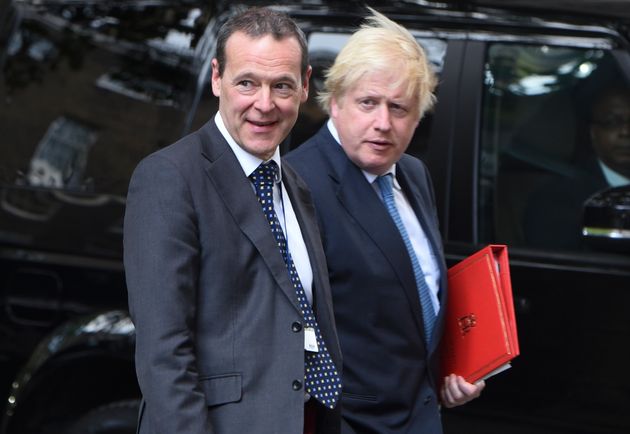Foreign Office chief given the boot by Boris Johnson

The Foreign and Commonwealth Office’s top mandarin has announced he will retire early “at the request” of Prime Minister Boris Johnson, as the ministry prepares to merge with the Department for International Development (DfID).
Sir Simon McDonald, who has served as the Foreign Office’s permanent secretary for five years, will step down in September.
The PM is understood to want a new leader in charge of the civil service body, following his announcement earlier this week that the Foreign Office would merge with DfID to form a new “super“ body.
Johnson’s decision was met with backlash from politicians, including three former British Prime Ministers, who claimed it would damage the UK’s international reputation.
Writing on Twitter, David Cameron said the merger was “a mistake”, and that “it will mean less expertise, less voice for development at the top table and ultimately less respect for the UK overseas”.
However, McDonald said he “fully” respected the decision. In a message to staff, he said the merger was “the right move for our future overseas effort” and “the culmination of my time here”.
“A new effort needs new leadership,” he added. “Whoever [that is] will take on a simply wonderful job.”
The announcement marks a sharp escalation of his departure, after McDonald told staff earlier this week that he would stay on as permanent secretary at the new Foreign, Commonwealth and Development Office (FCOD) until early next year.
Johnson thanked the outgoing boss for his “strong leadership” and the “fantastic support” he had given him while foreign secretary between 2016 and 2018.
McDonald sparked controversy in March when he said the government’s refusal to join an EU scheme to bulk buy ventilators during the coronavirus crisis was a “political decision”.
In a statement on Twitter today, McDonald said: “Five years ago I started as permanent under secretary wanting the Foreign Office to be more expert, more agile and better equipped. We needed to reverse fragmentation of managing foreign policy by a unified effort. [The] creation of the FCDO achieves that. Job done! Time to go, as I just told 4,500 colleagues.”